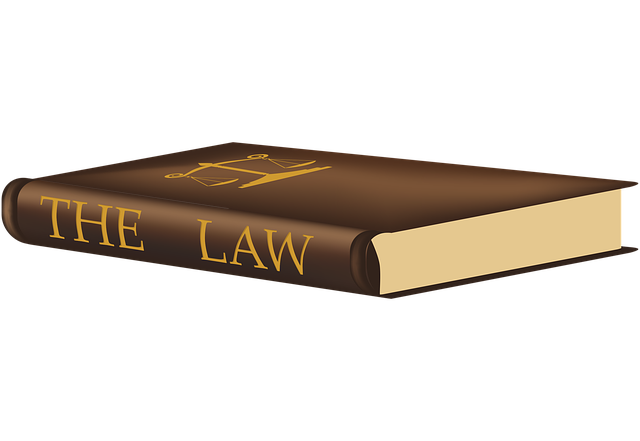Whistleblower protection lawsuits play a pivotal role in exposing illegal activities, offering employees legal recourse against retaliation and ensuring fair compensation. Proving damages in defamation cases is crucial, requiring meticulous documentation to demonstrate career and reputation harm. While quantifying losses for white-collar crimes can be complex, successful strategies emphasize deterrence, public interest, and personal sacrifices. Balancing corporate interests with justice demands tailored legal arguments that uphold truth while delivering substantial recoveries and acting as a deterrent.
“Whistleblower Protection Lawsuits: Safeguarding Voices of Truth
In an era where corporate and governmental misconduct demands scrutiny, whistleblower protection lawsuits have emerged as a crucial legal tool. This article delves into the intricate world of these suits, offering a comprehensive framework for understanding their significance. We explore the challenges faced by whistleblowers when proving damages in defamation cases, providing insights on navigating complex legal landscapes. Furthermore, we uncover successful strategies to protect these individuals and ensure their claims are heard, fostering a culture of transparency and accountability.”
- Understanding Whistleblower Protection Lawsuits: A Framework
- Proving Damages: Navigating Defamation in Whistleblower Cases
- Strategies for Success: Protecting Whistleblowers and Their Claims
Understanding Whistleblower Protection Lawsuits: A Framework
Whistleblower Protection Lawsuits are a crucial mechanism for holding organizations accountable when employees come forward with information about illegal or unethical activities. Understanding the framework behind these lawsuits is essential to navigating the complex process of proving damages in defamation cases. These suits not only protect whistleblowers from potential retaliation but also ensure that they receive fair compensation for their efforts.
The process begins with an employee’s decision to expose misconduct, often involving sensitive and confidential information. This act triggers a series of events, including internal investigations and, if necessary, legal actions against the employer. Proving damages in defamation cases is a critical aspect, where whistleblowers must demonstrate the negative impact on their careers and reputations. Through meticulous documentation and evidence collection during all stages of the investigative and enforcement process, winning challenging defense verdicts becomes more attainable. This not only benefits individual whistleblowers but also strengthens the philanthropic and political communities by fostering transparency and accountability.
Proving Damages: Navigating Defamation in Whistleblower Cases
In whistleblower protection lawsuits, proving damages can be a complex task, especially when it comes to defamation claims. When a whistleblower exposes wrongdoing within a respective business, they often face personal and professional repercussions. To establish damages, plaintiffs must navigate the intricate web of defamation laws, which require demonstrating harm and the connection between the false statements and the alleged injury. This process involves presenting concrete evidence of reputational damage, financial losses, or other tangible consequences arising from the defamatory actions.
The unique nature of whistleblower cases often brings challenges in quantifying damages. For example, in white-collar and economic crimes, the impact on society might be significant, but individual whistleblowers may not directly experience substantial financial losses. As such, legal strategies must focus on showcasing the broader effects of defamation, including the deterrence of future misconduct, public interest served, and any personal sacrifices made by the whistleblower. Successfully navigating these complexities can lead to substantial recoveries for victims, ensuring justice and a deterrent effect against similar misdeeds.
Strategies for Success: Protecting Whistleblowers and Their Claims
Whistleblower protection lawsuits are a complex legal landscape, but with the right strategies, achieving extraordinary results is within reach. Protecting whistleblowers and their claims involves a meticulous approach to ensure the credibility and validity of their cases. One key aspect is establishing clear evidence of damages, especially in defamation cases. This includes proving the harm caused by false accusations or malicious reporting, which can significantly impact an individual’s reputation and career prospects. By presenting compelling evidence and expert testimony, plaintiffs can demonstrate the extent of their damages, enhancing their chances of a complete dismissal of all charges.
Moreover, these lawsuits often pit corporate and individual clients against each other. Effective strategy involves tailoring legal arguments to address both entities’ interests. For corporate clients, focusing on minimizing reputational damage and ensuring business continuity is crucial. Individual whistleblowers, on the other hand, may prioritize personal integrity and seeking justice for their efforts in exposing wrongdoing. Lawyers representing these cases must balance these differing objectives, aiming for a favorable outcome that respects the rights of all parties involved while upholding the principles of truth and transparency.
Whistleblower Protection Lawsuits play a crucial role in fostering transparency and accountability within organizations. By understanding the legal framework, effectively navigating defamation claims, and employing successful strategies, both whistleblowers and legal advocates can ensure these suits protect disclosures of wrongdoing while mitigating potential damages. Proving Damages in Defamation Cases is a critical aspect of this process, requiring meticulous attention to detail and a deep grasp of legal precedents. Ultimately, these efforts contribute to creating a safer environment for individuals who bravely expose corporate or governmental malfeasance.






